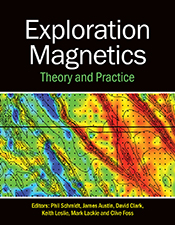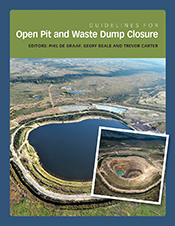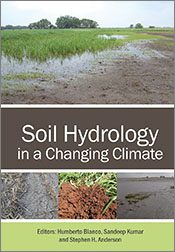Surface Water Balance for Recharge Estimation - Part 9
Deals with the surface water balance approaches that form the traditional basis of hydrological investigations.
This addition to The Basics of Recharge and Discharge series deals with the surface water balance approaches that form the traditional basis of hydrological investigations. It explores both field methods and modelling methods for measuring or estimating the different parts of the water balance, including rainfall, evaporation, run-off and soil water storage. + Full description
The authors discuss the concepts required to understand a surface water balance result or to set up an experiment. As water balance studies can be both time-consuming and expensive, this report will give readers a better understanding of water balance approaches and the considerations before going into a water balance study for the purpose of deep drainage.
- Short descriptionNews
No longer available in a print edition.
Details
ePDF | October 2002ISBN: 9780643105416
Publisher: CSIRO Publishing
Available from eRetailers
Features
- Provides a concise explanation of water balance studies and their use in estimating deep drainage.
- Includes an overview of water balance models and techniques for measuring or estimating different components of the water balance.
Contents
Overview1.Introduction and scope
2. Deep drainage as a component of the hydrological cycle
2.1. The hydrological cycle
2.2. The water balance
2.3. Evaluation of the water balance
2.4. Time scales of processes and measurements
2.5. Spatial scale of processes and measurements
3. Measuring and estimating water balance components
3.1. Choosing a site
3.2. Obtaining precipitation and interception data
3.3. Estimating envirotranspiration
3.4. Runoff estimation
3.5. Determining soil water storage
4. Integration with modelling
4.1. Simple bucket models
4.2. Complex models
5. Case studies
6. Concluding remarks
References
Authors
Lu Zhang is a hydrologist at CSIRO Land and Water with over 10 years research experience, and a research project leader with the Cooperative Research Centre for Catchment Hydrology. He has developed models that are increasingly used to predict the effect of land use changes on catchment water yield worldwide.Glen Walker is a senior scientist at CSIRO Land and Water with more than 20 years research experience. He is at the forefront of research on recharge estimation, groundwater modelling and dryland salinity, and a winner of Australia’s prestigious WE Wood Award for Innovation in Salinity Research
Mick Fleming is a Post Retirement Fellow with CSIRO Land and Water and an eminent hydrologist with expertise in water balance modelling, particularly in evaporation and energy balance modelling for hydrologic simulation and model development. With over 50 years experience in this field, Mick Fleming has contributed to national and international working groups convened by WMO, ICID, and FAO.








